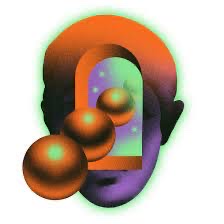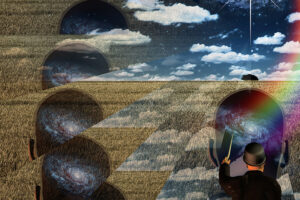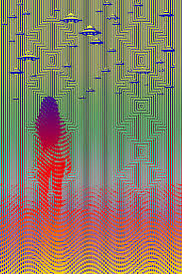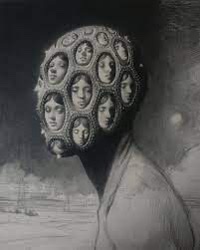In our world, terrorism is the subject of choice for modern humans. We are enthralled with the subject for we are daily inundated with terrorist data from the various negative media to the degree that many of us in the modern world eat, drink and sleep terror.

We “like” it that way, for we have become entranced by our negative leaders and the negative media into believing that these terrorist issues should occupy our every waking hour. Our leaders like it that way, for that is the way they want us to respond. The negative leaders are in business of control, and so in a way they use their proclamations to control us through fear. The fear produces body chemicals that create stress and anxiety as well as addiction to these fear-producing statements. We just can’t take our eyes off it. We just can’t ignore the headlines. And so the negative media like it that way, for they are profiting tremendously by spreading the negative messages of the negative leaders.

Now, I must remind of a lifesaving point here: we create our own reality. At risk of repeating myself, let us visit that concept again. On an individual and collective basis, humans create their individual Reality Fields and the mass-create consensus reality that we perceive in a linear fashion. Let us use an example to see how the negative leaders and their media “help” us form our individual and also our mass consciousness realities. It’s quite simple really… You are an average American who awakens to the sound of the radio news program that describes the latest atrocity perpetrated by the latest enemy of our country. Can you see how this sets the tone for the remainder of your day? Before becoming fully awake, in that “in between state” in which we are so impressionable, out mind is already picking up negative information that we will, no doubt, carry with us throughout the day. And as our mind finds in our mental and physical environments what feels is “corroboration” of this negative information – proof – it will note this proof and add it to the mix of negative data, beliefs, images and so on.

Again, in this way, the negative leaders and the negative media have won the contest for control of the minds of individual listeners and viewers and also have they gained control of the masses of listeners and viewers. Now, since telepathy among humans is imperative continually, we reinforce this negativity on the subtle levels by communicating, with other humans in the collective, on the negative leaders and their media. On these subtle levels ideas are accepted as fact, though there may have been NO CRITICAL THINKING Involved in accessing this data. Do you see how our leaders, our media and our unaware selves conspire to terrorize us? We are terrorizing ourselves. It is true that our leaders are at most fault for our predicament. But we as human individuals are also responsible for our dilemma. We have not taken individual responsibility for our own thoughts and actions. We have given our power to institutions, to leaders, to employers. No wonder then do we find ourselves afraid and powerless.

Obviously, the most direct and simple way to take our power back from the institutions of global negative media would be to not participate in them. As I have suggested at different stages in my Blogs, we can always TURN OFF THE RADIO, TURN OFF THE TV, TURN OFF THE VIOLENT MOVIES. Avoid the negative media when we are out in our physical environment. Vote with our pocketbook by not purchasing negative, violent, controlling media and other life-denying products of our mass-consumption society. We will soon begin to like it – our freedom – and our negative institutions and leaders will begin to not like it. The repression may grow then, because “the powers that be” will know that we are taking responsibility for our own thoughts and beliefs. However, persevere and our numbers will surely grow. The Forces of Light are in our favor. The probabilities for a mass transformation of consciousness into the positive arena are growing. Our contribution is necessary for the greater good of our species and our Mother Earth.

















































